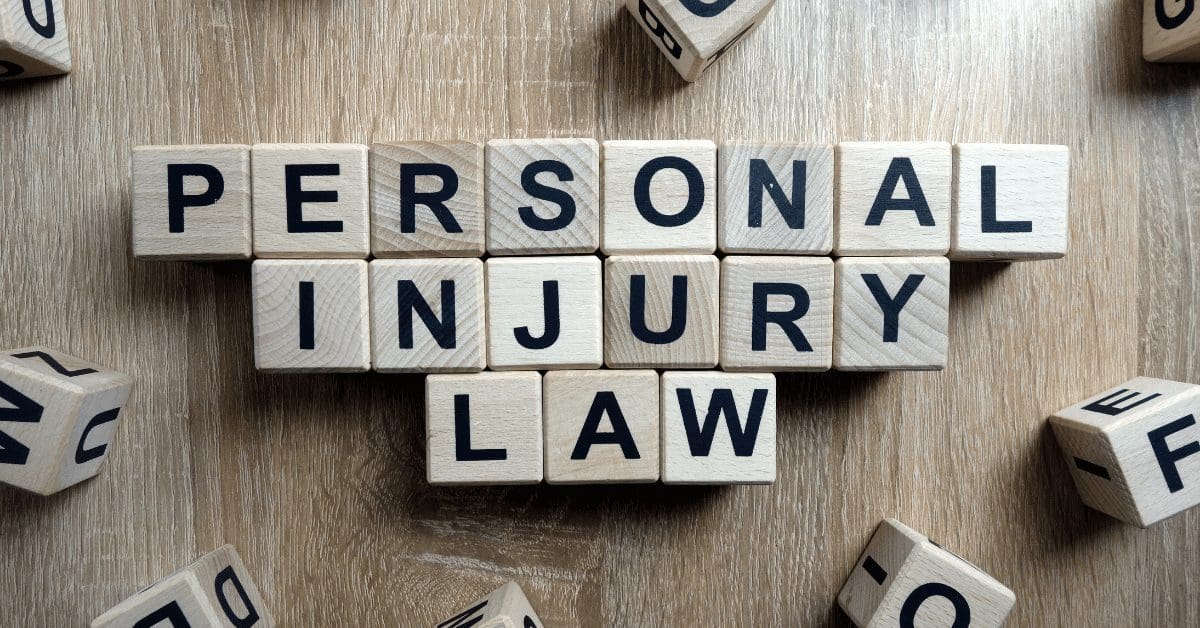Top Mistakes to Avoid After an Injury That Could Hurt Your Case

Suffering an injury due to someone else’s negligence can be overwhelming physically, emotionally, and financially. Whether it’s a car accident, slip and fall, or workplace injury, your first priority is recovery. But what you do (or don’t do) in the hours and days following the incident can significantly affect your ability to recover compensation.
Many injury victims unintentionally make mistakes early on that weaken their personal injury claims, sometimes beyond repair. From talking to insurance adjusters too soon to skipping medical appointments, even small missteps can be used against you by the other side.
In this blog, we’ll walk you through the most common mistakes people make after an injury, and how you can avoid them. Our goal is to help you protect your case and put yourself in the best position for a successful outcome.
Not Seeking Immediate Medical Attention
One of the most critical mistakes injury victims make is delaying or avoiding medical treatment right after an accident. Prompt medical care is essential not only for your health and recovery, but also for creating a clear, documented record of your injuries.
When you see a doctor immediately, your injuries are officially diagnosed and treated, which helps prevent complications and ensures you get the care you need. From a legal perspective, medical records serve as key evidence that your injuries are real, serious, and directly linked to the incident.
On the other hand, insurance companies often look for any excuse to minimize or deny claims. If there’s a gap between the injury and when you seek treatment, they may argue that your injuries weren’t serious or that they happened before or after the accident, casting doubt on your case. Acting quickly by getting medical attention strengthens your claim and protects your rights.
Failing to Report the Accident
Another common and costly mistake is failing to officially report the accident as soon as possible. Whether it’s a car crash, a slip and fall, or a workplace injury, documenting the incident through proper channels, such as filing a police report or notifying your employer, is crucial.
An official report creates an unbiased, formal record of what happened, including details like the time, location, parties involved, and any witnesses. This documentation can be invaluable when proving liability and supporting your personal injury claim.
Without an official report on file, it becomes much harder to establish the facts of the case. Insurance companies may question whether the accident actually occurred as described or argue that your injuries are unrelated. Failing to report promptly can weaken your claim and reduce your chances of receiving fair compensation.
Admitting Fault or Making Incriminating Statements
In the aftermath of an accident, it’s natural to feel shaken, confused, or even guilty, even if you weren’t at fault. However, making statements like “I’m sorry” or speculating about what caused the incident can seriously harm your personal injury case.
Anything you say at the scene can potentially be used against you by insurance companies or defense attorneys. Even seemingly harmless comments may be interpreted as admissions of fault or liability. For example, saying “I didn’t see you coming” might be used to argue that you were distracted or negligent.
That’s why it’s crucial to stick to the facts and avoid making assumptions or apologies. Provide only the necessary information when reporting the incident and let the investigation determine fault. Protecting words in the early stages can make a significant difference in the outcome of your claim.
Not Gathering Evidence
Failing to collect evidence at the scene of an accident is a major mistake that can seriously weaken your personal injury claim. Evidence is what helps prove what happened, who was at fault, and how the incident impacted you. Without it, you’re left with little more than your word—something insurance companies are quick to challenge.
Whenever possible, gather as much information as you can right away. Take clear photos or videos of the scene, including vehicle damage, hazardous conditions, visible injuries, and anything else relevant. If there are witnesses, get their names and contact details. They may be critical in supporting your version of events.
Missing or incomplete evidence can make it much harder to establish liability or prove the extent of your injuries. By taking a few simple steps to document the incident early on, you give your case a stronger foundation and improve your chances of a successful outcome.
Talking to Insurance Adjusters Without Legal Representation
One of the most common and risky mistakes injury victims make is speaking with insurance adjusters before consulting a lawyer. While adjusters may seem friendly and concerned, it’s important to remember that they work for the insurance company, not for you.
Their primary goal is to minimize the amount the company pays out, not to ensure you receive full and fair compensation. They may pressure you to give a recorded statement, which can later be used against you if you say something that’s unclear, inconsistent, or can be twisted to downplay your injuries or shift blame.
Additionally, adjusters often offer quick settlements early in the process, usually before the full extent of your injuries and future medical needs are known. Accepting an early offer may mean signing away your right to pursue additional compensation later, even if your condition worsens.
To protect yourself, avoid discussing your case in detail with an adjuster until you’ve spoken with a qualified personal injury attorney. Legal representation ensures your rights are protected and helps you avoid being taken advantage of during a vulnerable time.
Posting on Social Media
In today’s digital age, one of the easiest ways to unintentionally damage your personal injury claim is by posting on social media. Insurance companies and defense attorneys often monitor platforms like Facebook, Instagram, TikTok, and X (formerly Twitter) for any content that can be used to discredit your case.
Even seemingly harmless posts, like a photo at a family gathering or a status update saying you’re “doing fine,” can be taken out of context and used to argue that your injuries aren’t as serious as you claim. There have been real cases where victims lost compensation or had their credibility questioned because of posts showing them being active or engaging in activities that appeared inconsistent with their reported injuries.
To protect your case, it’s best to avoid posting anything about your accident, injuries, or recovery. In fact, consider staying off social media altogether while your claim is pending. Also, ask friends and family not to tag you or share updates about your situation. When it comes to legal claims, silence online is often your strongest ally.
Failing to Follow Medical Advice
After an injury, it’s not enough to simply seek initial medical attention—you must also follow through with your doctor’s recommendations. Ignoring medical advice, skipping appointments, or stopping treatment early can seriously damage your personal injury claim.
Insurance companies look for any sign that your injuries aren’t as severe as you claim. Gaps in treatment or non-compliance with prescribed care (like physical therapy, medication, or follow-up visits) can be used to argue that you weren’t really hurt or that you’ve already recovered. This weakens your credibility and may reduce the value of your compensation.
Consistent medical care not only helps you heal but also creates a clear and reliable medical record that shows the extent and duration of your injuries. To protect your health and your case, follow all treatment plans closely and communicate with your healthcare providers about any difficulties in keeping up with care.
Waiting Too Long to Contact a Personal Injury Attorney
One of the most damaging mistakes an injury victim can make is waiting too long to consult a personal injury attorney. Time is critical in these cases. Not only because of legal deadlines, but also because delays can weaken your ability to gather evidence and build a strong case.
In Texas, the statute of limitations for most personal injury cases is two years from the date of injury. If you miss this deadline, you could lose your right to seek compensation entirely, no matter how valid your claim is.
Beyond legal deadlines, early legal advice is essential for protecting your rights. A personal injury attorney can help you avoid common missteps, communicate with insurance companies on your behalf, preserve important evidence, and ensure that your case is handled correctly from the beginning. The sooner you speak with an attorney, the better your chances of achieving a fair and favorable outcome.
Injured? Contact Thomas J. Henry Law Today
Suffering an injury can be overwhelming, but the steps you take immediately afterward can make a significant difference in your ability to recover both physically and financially. Avoiding common mistakes can protect the strength of your personal injury claim.
Being proactive about your health, documenting the incident, and seeking timely legal advice are all crucial to preserving your rights and maximizing your compensation. Don’t let small oversights jeopardize your future. If you’ve been injured due to someone else’s negligence, contact our firm today for a free consultation. We’re here to provide the legal guidance you need.
Blog










